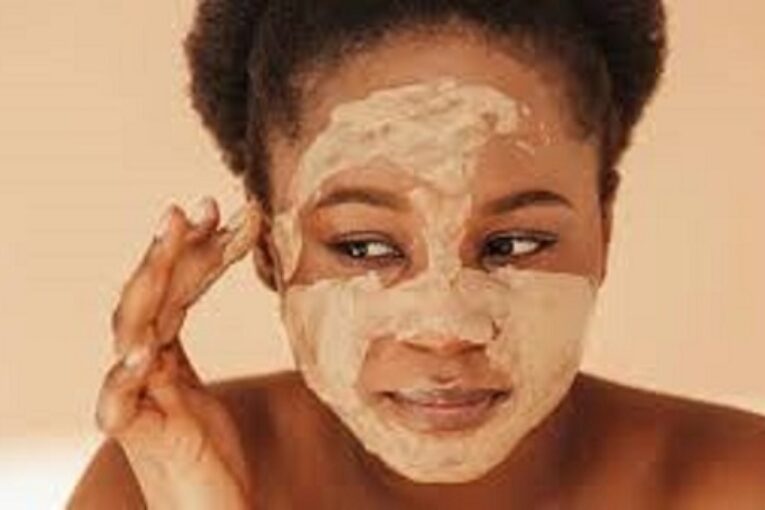
Are you ready to unearth the secrets to radiant, youthful skin? Clay masks are packed with detoxifying and nourishing properties and they might just be what your skin has been yearning for. Come, let us explore the transformative power of clay masks. A time-tested remedy that’s as relevant today as it was in the days of Cleopatra.
How Clay Mask Improves Skin Health?
- Skin Detoxification with Clay Mask
Clay can absorb excess oils and other liquid impurities from the skin. Clay particles have a large surface area and a net negative charge. When a clay mask is applied to the skin, positively charged impurities like bacteria, dirt, and heavy metals are attracted to the clay particles and adhere to their surface. This makes clay an excellent detoxifying agent.
- Nutrient Supply with Clay Mask
Clay can absorb excess oils and other liquid impurities from the skin. Clay particles have a large surface area and a net negative charge. When a clay mask is applied to the skin, positively charged impurities like bacteria, dirt, and heavy metals are attracted to the clay particles and adhere to their surface. This makes clay an excellent detoxifying agent.
Clays like French Green Clay and Rhassoul Clay are rich in essential trace elements such as magnesium, calcium, potassium, and silica. These minerals are absorbed by the skin during the treatment, offering nourishment at a cellular level. For instance, magnesium can aid in the skin’s natural repair process, and silica can boost collagen production.
- The pH level of the skin plays a critical role in maintaining a healthy skin barrier and microbiome. An imbalanced pH can lead to various skin issues like dryness, irritation, and acne. Different clays have different pH levels. For example, bentonite clay tends to be more alkaline, while kaolin clay is more neutral.
Using a clay mask can help balance the skin’s pH level. For skin that tends to be more on the oily or acne-prone side, a more alkaline clay like bentonite can help balance excess acidity, which is often linked to inflammation and bacterial growth. On the other hand, for skin that is dry or sensitive, a neutral to slightly acidic clay like kaolin can help maintain the skin’s natural barrier without causing irritation.
A clay mask remove impurities and toxins, supplies essential trace elements and minerals to nourish the skin, and can help balance the skin’s pH level. These benefits make clay an excellent natural remedy for a range of skin concerns, from acne and oily skin to dryness and aging.
Top 5 Benefits of Clay Masks for Skin
- 1. Supplies Essential Nutrients to the Skin
- Clay masks are more than just a detoxifying treatment. They also offer a range of nutrients that can nourish the skin. Clays are rich in essential minerals such as magnesium, calcium, potassium, zinc, and silica. These minerals get absorbed into the skin when you apply a clay mask.
- Magnesium
Magnesium is known for its healing properties and can improve the skin’s overall appearance, reducing acne and other skin disorders.
-
- Calcium
Calcium is vital for skin regeneration and helps in skin growth and renewal.
-
- Potassium
Potassium helps in keeping the skin hydrated and moisturized.
-
- Zinc
Zinc is known for its healing and anti-inflammatory properties and help treat acne and reduce redness and scarring.
- 2. Anti-aging Effects
- Clay masks can also have anti-aging effects. The minerals found in clay can aid in the rejuvenation of skin cells, reduce the appearance of fine lines, and improve the elasticity of the skin. Silica, which is found in found in many types of clay, helps in collagen production. Certain clays possess antioxidant properties, which help to combat free radicals that cause premature aging. The mild exfoliating effect of clays can help remove dead skin cells and promote new cell growth, providing a youthful appearance.
· 3. Helps in Removing Excess Oil
Clay has a unique ability to absorb excess oils from the skin. This is particularly useful for people who have oily skin. The high absorbency rate of certain clays can soak up excess oils without over-drying the skin, creating a more balanced skin texture.
· 4. Helps Clean Clogged Pores
The fine particles in clay act as a natural exfoliant, helping to remove dead skin cells that can clog pores. When the clay mask is washed off, it can carry away these particles, leading to cleaner pores. The negatively charged molecules in clay also attract positively charged impurities, such as dirt and bacteria, making it easier to cleanse them away.
- 5. Helps Reduce Inflammation and Redness
Certain types of clay have anti-inflammatory properties. When applied to inflamed or irritated skin, they can help reduce redness and calm the skin. This is particularly beneficial for people who have sensitive skin or skin conditions like rosacea or eczema. Clay masks can also have a soothing effect due to the minerals they contain, such as magnesium and calcium, which can help heal the skin and reduce irritation.
Types of Healing Clays
Various types of healing clays are popular in skincare, each offering unique properties that make them suited for different skin types and concerns. Below is an overview of some of the most commonly used healing clays. Each type of healing clay offers unique properties that can address a range of skincare needs. Understanding these can help you choose the right clay for your individual skin concerns.
- Bentonite Clay
Bentonite Clay is a highly absorbent clay formed from the weathering of volcanic ash. It is most commonly found in the United States and is rich in calcium, sodium, and potassium.
-
- High Absorbency: Extremely effective at absorbing excess oils and sebum from the skin.
- Detoxification: Known for its strong detoxifying effects, it can draw out impurities and toxins effectively.
- Alkaline pH: Generally has a higher pH, making it useful for balancing an acidic skin environment often associated with inflammation.
- Best for oily, acne-prone skin, and for deep cleansing.
- Kaolin Clay
Kaolin Clay, also known as China Clay, is a naturally occurring soft clay. It comes in several colors, including white, red, and pink, each with slightly different properties.
-
- Mild and Gentle: Ideal for sensitive skin and less likely to cause irritation compared to more absorbent clays.
- Neutral pH: Maintains skin’s natural pH balance.
- Mild Exfoliation: Offers gentle exfoliation suitable for sensitive skin.
- Best for sensitive or dry skin, and for mild cleansing and exfoliation.
- French Green Clay
- French Green Clay, also known as Illite, is a mineral-rich clay found in France. It has a fine texture and is green due to the presence of decomposed plant matter and iron oxides.
- Nutrient-rich: High in minerals like magnesium, calcium, and zinc.
- Anti-Inflammatory: Known for its soothing and healing properties.
- Tightening Effect: Offers skin-tightening benefits, making it ideal for aging skin.
- Best for mature or inflamed skin, and for those looking to detoxify while also receiving a mineral boost.
- Rhassoul Clay
Rhassoul Clay is found in the Atlas Mountains of Morocco and has been used for centuries in North Africa for skin and hair care.
-
- Hydrating: Known for its hydrating properties, making it unique among clays.
- High Mineral Content: Rich in magnesium, silica, potassium, and calcium.
- Mild Detoxification: Offers gentle detoxification suitable for all skin types.
- Best for all skin types, particularly those with dry or sensitive skin.
- Fuller’s Earth
Fuller’s Earth is a naturally occurring sedimentary clay. It is primarily used for skin-lightening and as a natural bleach.
-
- Skin Lightening: Known for its mild bleaching properties, it can help to fade scars and reduce hyperpigmentation.
-
- Oil Absorption: Highly effective in absorbing excess oil and treating oily skin.
- Rich in Minerals: Contains various minerals like alumina, silica, and iron oxides.
- Best for oily skin and for those looking to reduce scars or pigmentation.
Easy Clay Mask Recipes
Clay masks are a versatile component of a skincare regimen. One of the great things about them is how customizable they are. Below are some easy clay mask recipes tailored to different skin needs.
- Basic Clay Mask Recipe
This basic clay mask is suitable for all skin types, depending on the type of clay used. It’s great for a simple detox and refresh.
-
- Ingredients
- 2 tablespoons of your choice of healing clay (e.g., Bentonite, Kaolin)
- 2 to 3 tablespoons of distilled water or rose water
- Steps
- In a non-metal bowl, mix the clay with the water until you form a smooth paste.
- Apply the mask to your clean face, avoiding the eye area.
- Ingredients
-
-
- Leave it on skin for 10 to 15 minutes, or until the mask starts to tighten (but not fully dry).
- Rinse off with warm water and follow with a moisturizer.
-
- Clay Mask with Essential Oils
This mask is excellent for targeted treatments, depending on the essential oil used. For example, tea tree oil is anti-bacterial and is excellent for acne-prone skin, while lavender is calming and is good for sensitive or inflamed skin.
-
- Ingredients
- 2 tablespoons of your chosen clay (e.g., French Green Clay for aging skin, Bentonite for oily skin)
- 2 to 3 tablespoons of distilled water or rose water
- 2 to 3 drops of essential oil (e.g., tea tree for acne, lavender for calming, or rosemary for revitalization)
- Steps
- In a non-metal bowl, mix the clay and water to form a paste.
- Add 2 to 3 drops of your chosen essential oil and mix well.
- Apply to clean face, avoiding the eye area.
- Leave it on skin for 10 to 15 minutes or until it starts to tighten.
- Rinse off with warm water and apply a moisturizer.
- Ingredients
· Clay and Yogurt Mask for Extra Nourishment
This mask is excellent for dry or sensitive skin that needs extra nourishment. The yogurt contains lactic acid, which gently exfoliates, and its natural fats add hydration. Honey, if used, adds antibacterial and extra hydrating properties.
o Ingredients
-
-
- 1 tablespoon of your chosen clay (e.g., Rhassoul for hydration, Kaolin for sensitive skin)
- 1 tablespoon of natural, unsweetened yogurt
- 1 teaspoon of honey (optional)
-
o Steps
-
-
- In a non-metal bowl, mix the clay and yogurt until smooth.
- If using, add honey for extra hydration and antibacterial properties.
- Apply to clean face, avoiding the eye area.
- Leave it on skin for 10 to 15 minutes.
- Rinse off with warm water and follow with a moisturizer.
-
Conclusion
Incorporating a clay mask into your skincare routine can be a simple yet powerful way to improve your skin’s appearance and health. Your skin might just thank you for the natural detox and nourishment. Remember, skincare is an ongoing process of discovery, and clay masks could be the next step in your journey to achieving the radiant, healthy skin you deserve. Happy masking!
– webmedy




